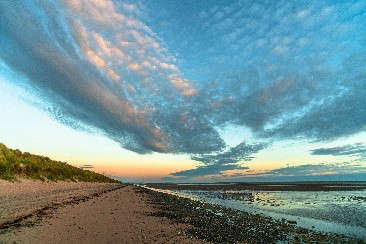The re-examined reputation of a military leader - whose Chester statue is the object of widespread protest - is being explored in a blog post and short film by a University academic as the anniversary of the abolition of slavery in the US is marked.
In the latest offering in the 'Global History in One City' series, which explores the long, rich and diverse history of Chester, Dr Hannah Ewence, Senior Lecturer in Modern History at the University of Chester (UoC), discusses the rediscovery and re-evaluation of Viscount Combermere’s (1773-1865) life and impact. People are invited to find out more about how his legacy has travelled a complete arch, from celebrity, through obscurity, to infamy.
The blog and video are being published just ahead of the anniversary of the date on which the 13th amendment, abolishing slavery, was ratified in the US - December 6, 1865 - coincidentally also the year of Field Marshal Stapleton Cotton, First Viscount Combermere's death.
Once seen as a military hero of Britain’s imperial age, and celebrated as humane by the time of his death, Combermere’s statue had been considered part of the fabric of ‘historic Chester’. However, more recent research, carried out in part by Dr Ewence and UoC students, has shown Combermere to have also been embroiled in far less commendable acts, all in the name of imperialism, including the ownership of hundreds of slaves.
When his dark past became public knowledge earlier this year, calls were made for his bronze cast on the traffic island at Grosvenor Road to be removed, and Black Lives Matter campaigners protested at the site. The calls and the debate currently continue.
Dr Ewence said: “The statue of Viscount Combermere has greeted visitors to the city of Chester since it was put up in 1865. Yet whilst this equestrian figure is a familiar presence to Cestrians, Combermere’s once lauded and laudable achievements, had, until recently, been all but forgotten. Only now are they being re-evaluated.
“In his time, Combermere was considered to be a great military leader, respected and befriended by the Duke of Wellington. Famed for commanding the cavalry to success in the Peninsular War, he later took on more sedate roles as the Governor of Barbados, the Commander in Chief of Ireland, and, later, of India.
“By 1825, so great was his reputation, that he was awarded a peerage and the title of ‘Chester’s hero’. Celebrated as ‘tender, considerate, and humane’ by one Chester newspaper, by the time of his death in 1865 he was a veritable legend, and a towering figure in local consciousness. As the diaries of George Harrison, a local iron founder reveal, Cestrians were shocked to learn that the old war ‘hero’ had died. Donations from local people to help raise funds for the statue flooded in.
“Yet, Combermere’s career was not quite as untarnished as local people thought. His brutal suppression of an uprising against British rule in Bharatpur, India, in 1825 had tragic consequences. Bharatpur suffered under weeks of siege before heavy bombardment by the British broke the deadlock. Reports of the number of Indian dead range from 4,000 to 10,000.
“Parliamentary papers also reveal that he was entangled in the slave trade. Combermere owned two plantations in the Caribbean, receiving over £7,000 - about £420,000 in today’s money - in compensation for the ‘loss’ of 420 slaves as a consequence of abolition.”
To read the blog, please go to: https://www1.chester.ac.uk/news/chester%E2%80%99s-legacies-empire?list=5517.
Dr Ewence specialises in comparative minority studies, and the history of race and immigration in the late 19th-century, 20th-century and contemporary Britain.
The International Day for the Abolition of Slavery also took place on December 2. Run by the United Nations, the focus of this day is on eradicating contemporary forms of slavery.
Pictured - The statue of Viscount Combermere.

 Protecting people from the sun
Protecting people from the sun
 Come and speak to North Wales Police
Come and speak to North Wales Police
 Council to start enforcement of moving traffic offences
Council to start enforcement of moving traffic offences
 Supporting people on their journey to employment
Supporting people on their journey to employment
 Ian Puleston-Davies opens new staff wellbeing hub at Countess of Chester Hospital NHS Foundation Trust
Ian Puleston-Davies opens new staff wellbeing hub at Countess of Chester Hospital NHS Foundation Trust
 One week to the Council’s event to help you switch to electric vehicles
One week to the Council’s event to help you switch to electric vehicles
 Rural Crime Team equipped with mobile defibrillators
Rural Crime Team equipped with mobile defibrillators
 New online hub for the Dee Estuary
New online hub for the Dee Estuary
 Chester and Wirral Football League - Latest Results
Chester and Wirral Football League - Latest Results
 Is being a wholetime firefighter the job for you?
Is being a wholetime firefighter the job for you?
 RISING YOUNG MUSICAL THEATRE STAR SET TO JOIN CHESTER CHOIR AS SPECIAL GUEST
RISING YOUNG MUSICAL THEATRE STAR SET TO JOIN CHESTER CHOIR AS SPECIAL GUEST
 CHESHIRE WOMEN’S CRICKET LEAGUE - LATEST RESULTS
CHESHIRE WOMEN’S CRICKET LEAGUE - LATEST RESULTS
 Local MP has pledged support for those suffering with endometriosis
Local MP has pledged support for those suffering with endometriosis
 Make History: Build a Future Free From Homelessness
Make History: Build a Future Free From Homelessness
 Council prosecutes Chester businesses for illegal tobacco offences
Council prosecutes Chester businesses for illegal tobacco offences
 Cheshire Constabulary to support national operation to cut out county-wide knife crime
Cheshire Constabulary to support national operation to cut out county-wide knife crime
 Chester FC Community Trust marks Mental Health Awareness Week
Chester FC Community Trust marks Mental Health Awareness Week
 CLASSICAL MUSIC STARS OF THE FUTURE SET TO TAKE CENTRE STAGE AT CONCERT SEASON FINALE
CLASSICAL MUSIC STARS OF THE FUTURE SET TO TAKE CENTRE STAGE AT CONCERT SEASON FINALE
 Foster Care Matters Fostering Agency launches in Chester
Foster Care Matters Fostering Agency launches in Chester